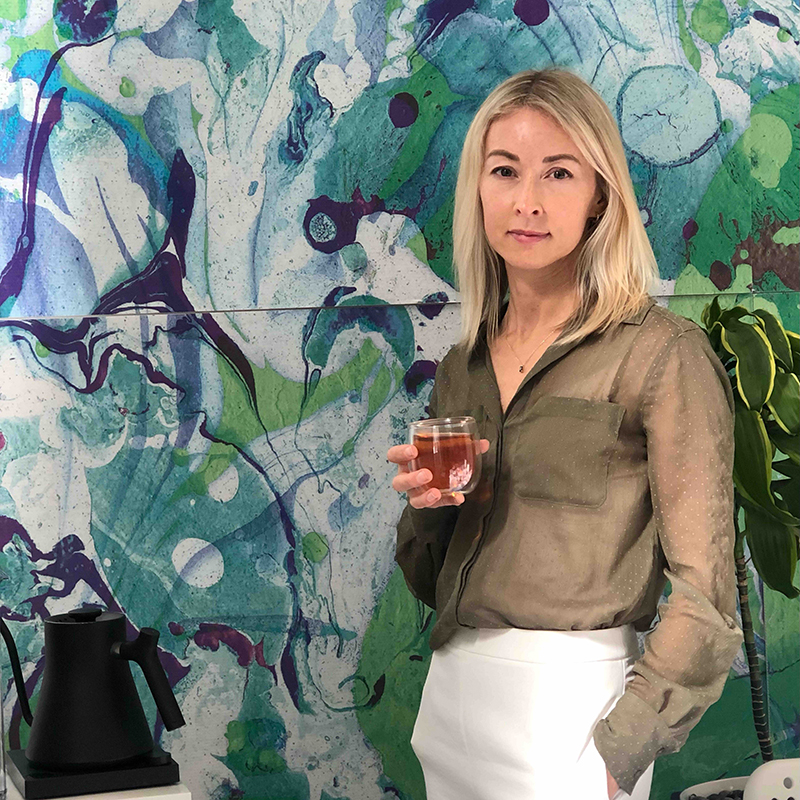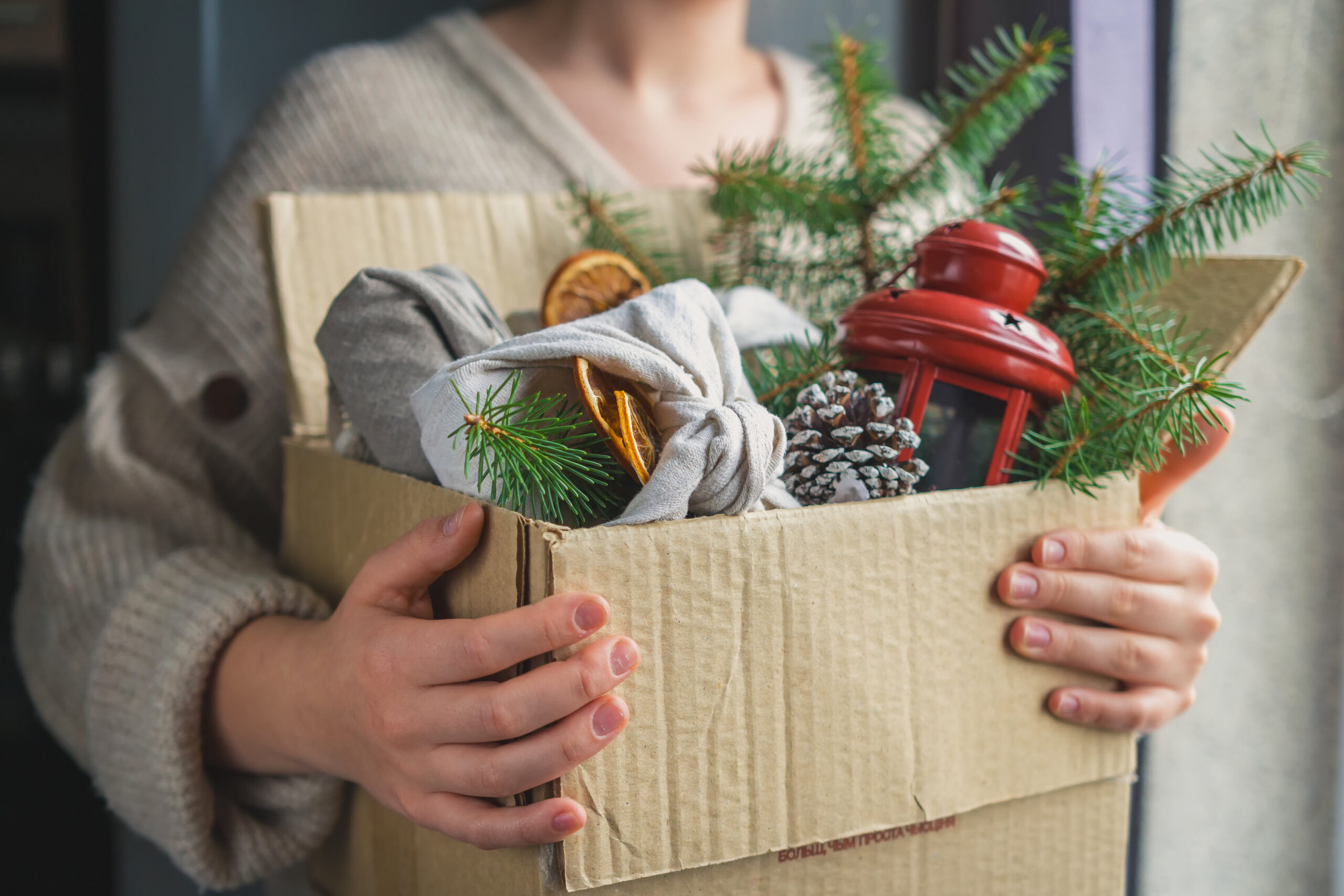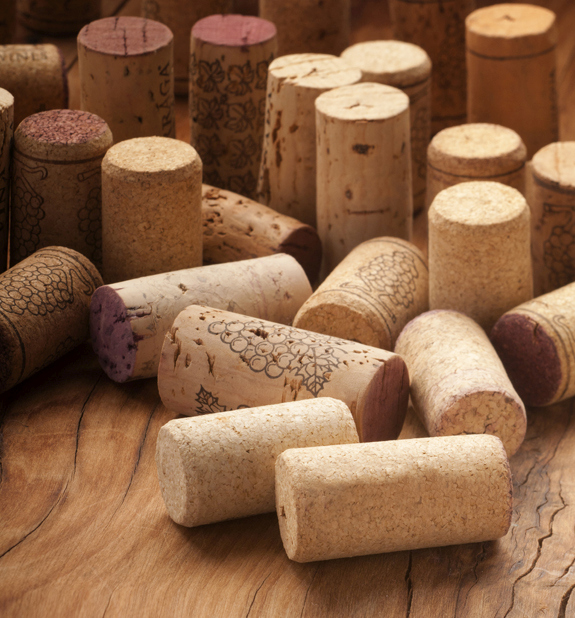In the space of a decade, Anna Kydd has experienced more hardship than most people do in a lifetime.
In 2013, her husband Andy was diagnosed with Stage IV bowel cancer – a massive shock. He was just 35 at the time and Anna was seven months pregnant with their first child.
The 12 months after his diagnosis were exceptionally difficult for the couple: Andy underwent two surgeries and 12 debilitating rounds of chemo, while Anna looked after their newborn, Vienna, who cried all the time and never slept. “The year was total survival for us,” remembers Anna. “I was just existing – at that point, I didn’t have any tools or skills for how to manage stress.”
After Andy’s twelfth round of chemo, scans showed no signs of cancer and the couple breathed a sigh of relief. But things weren’t over yet. For a few years after his initial treatment, Andy seemed reasonably well – the couple moved back to New Zealand from Australia to be close to family and had a second child, Lola. But towards the end of 2016, a routine scan showed something abnormal in Andy’s oesophagus area.
The Tea Curator
2017 brought some positives, among them the launch of Anna’s business: The Tea Curator. She had always been interested in tea. “I grew up rurally and we always had a teapot with a knitted cosy on the breakfast table,” she remembers. “Mum always made a pot for visitors too and I’ve always associated tea with connection.”
While living in London in 2010, Anna took part in a tea masterclass and discovered a whole new dimension to the beverage. At the time, she was working in the corporate world but the class flipped a switch, and she realised she wanted to end up working with tea at some point.
Fast forward a few years and Anna and Andy had moved to Australia. After an intensive training course at the Australian Tea Masters Association and a rigorous exam, she graduated as a certified tea master in 2016. While on maternity leave with her second daughter, she decided it was time to take the leap.
The Tea Curator offers specialty tea, tea subscriptions and gifts and has a strong focus on education, aimed at introducing people to the rich and complex world of tea, as well as supplying a few restaurants.
Anna focuses on tea from the tea plant, Camellia sinensis – that is, pure white, green, yellow, oolong, black and dark tea, rather than herbal infusions or blends – and puts accessibility front and centre. “I wanted to make it easy for people to learn about beautiful specialty tea and try lots of different types, which can be a bit difficult in New Zealand,” she says.
Why tea? For Anna, it’s about the richness of the drink’s history, production and flavour, which she considers just as complex as wine. “There’s so much variation in terms of what the leaves look like, what they feel like, how they smell, how they taste,” she says. “It’s an endlessly fascinating subject.”

Coping with the worst
In March 2017, just as Anna was beginning to think out the concept of her business, the Kydds learnt that Andy’s bowel cancer had returned – and it was incurable.
Because of where the tumour was growing, surgery wasn’t an option, and the Kydds knew just how debilitating chemotherapy was for Andy. Feeling they were out of options, Anna found a biochemist and naturopath who specialised in advanced cancer patients and put Andy on a completely new diet. “Andy’s cancer didn’t grow for nine months, which was really interesting,” remembers Anna. “That said a lot to me about how much gut health matters to your immune system.”
But at the end of 2017, Andy had an infection and had to go on antibiotics twice – and the cancer began growing again soon afterwards. He started chemotherapy again in mid-2018, which rapidly degraded his quality of life. During the next year and a half, Anna and Andy also each lost a parent to cancer.
While they dealt with their grief, Andy grew sicker and sicker. By the end of 2019, he couldn’t swallow and had a stent put in his throat; a second was inserted just before the first 2020 lockdown. After a year of pain, things went rapidly downhill from March 2021. Andy spent time in hospice care before moving home, where he wanted to be for the final stretch. He was incredibly ill by this point – unable to move, speak, see, or eat; he could drink only small amounts – and Anna was providing round-the-clock care while looking after the kids.
Andy died at home early in the morning on 5 April 2021.
Anna was immediately thrown into being a solo parent to a four-year-old and a seven-year-old. Four months after Andy’s death, the country entered another lockdown, a challenge even for families in much less dire circumstances.
“I thought, how am I ever going to do this alone? But I didn’t have a choice, so I decided the most important thing was going to be family harmony. We were going to nurture each other, and I was going to look after myself,” says Anna. It’s an approach that has seen her through the worst.
Philosophies for resilience
What’s remarkable is that despite the enormous suffering Anna has been through, she has endured. How?
Anna lives by five philosophies. The first and most important is to make your health and wellbeing your number one priority. “Through social conditioning, women often put their children and spouses first, for example,” she says. “But I don’t think it’s right to put so many things before our own needs. The more we look after ourselves, the more capable we are in every aspect of our lives.”
She suggests writing out your top priorities and putting the list somewhere visible. “When you’re asking yourself, ‘do I answer these emails or go to yoga?’, you can look at the list and see that your wellbeing is a top priority – so you go to yoga. Having that list has helped me so many times,” she says.
Anna’s second, related philosophy is to view activities that support your wellbeing as non-negotiable investments in your health – not as something lazy or self-indulgent. “The only thing guaranteed to be with you for the rest of your life is your body and your mind, so it makes so much sense to really nurture them,” she says.
Her third philosophy is to embrace an imperfect life. In the highly visual, social media-led culture we live in, it’s easy to want lives that look perfect. But it’s a false expectation to have of ourselves, says Anna: “My life is messy, but it’s interesting, and it’s so much better being comfortable with imperfection than striving after something impossible.”
Anna also tries to view challenges as opportunities for growth. The past 10 years have been harrowing, but they’ve taught her a lot about her strengths, about relationships and about her body and mind. “I try to step back every now and again and say, okay, what am I learning throughout this really horrible time? That’s made me a much wiser, stronger and more rounded person than I would have been otherwise,” she explains.
Finally, Anna swears by remembering that while we often can’t control our circumstances, we can always choose how we respond to them. After any difficult event, she explains, take a moment to pause, acknowledge the difficulty of the situation, then decide, ‘what am I going to do about this? How am I going to think about it or describe it to myself?’ “Being really deliberate about the action we take and understanding what long-term outcomes we want is really powerful,” she says.
The wisdom of tea
What does tea have to do with all this? It has been part of Anna’s wellbeing practice throughout the past 10 years. She views it as a “gentle teacher” in her life because tea can’t be made – or drunk – quickly. Stopping for a cuppa is a way to slow down and engage with your senses; a simple, accessible mindfulness tactic.
“I’m a very busy person, which doesn’t always serve me well from a stress point of view, and tea helps me take a moment,” says Anna. “Tea is best if you take your time, take care when making it, and concentrate on enjoying it. I think it’s the same with life – it’s better if we stop trying to do five things at once and just focus on the thing in front of us.”
Anna demonstrates that it’s possible to practise resilience, positivity and safeguarding your own wellbeing even in the face of huge suffering. There’s something for all of us to learn from her story about coping with stress – even if it’s just the extraordinary power of stopping, really stopping, for a cup of tea.

Anna’s top wellbeing tips
Create morning and evening routines for your weekdays.
Safeguard the ‘bookends’ of your days by getting up and going to bed at the same time each day, and creating routines to ease you into the day and wind down for the night. (Anna herself starts the day with warm lemon water, 15 minutes each of yoga and meditation and an hour and a half without her phone; she winds down by writing in her gratitude diary, lying on her Shakti mat and reading.)
Diaphragmatic breathing.
When you find yourself in a moment of stress, take 5-20 long, slow, deep breaths into your belly and stretch out your ribs to signal to your brain that everything’s safe. This is a great calming technique because you can do it anywhere without equipment!
Be deliberate about your downtime.
In today’s world, it can be difficult to find time to take a break – but it’s vital! To make sure she gets her precious downtime, Anna diaries it like any other commitment: every morning at 10.30, she stops for a mindful tea break.
Move your body.
Likewise, schedule in exercise to make sure you’ll actually view it as a commitment each week. For Anna, that means a regular HIIT class on Tuesday mornings and yoga on Thursdays – but what would it look like in your week?
Learn a tool for processing difficult emotions.
Anna swears by a technique called ‘acknowledge, link and let go’. When something difficult happens, name and acknowledge the difficult emotion you’re feeling and reassure yourself it makes sense to be feeling it given the circumstances. Then breathe in, and as you breathe out, let the emotion go. Anna says this technique helps the brain to categorise difficult events and move forward rather than getting stuck.
Choose food that nourishes your gut and brain.
Anna opts for foods that will increase the diversity of the gut microbiome – plenty of fibre, varied veggies, a healthy helping of fermented foods, not too much sugar – which in turn help support immunity and mental health. Her top tip? Don’t keep unhealthy food in the house – instead, make sure you have lots of healthy treats to turn to when the inevitable cravings hit.






